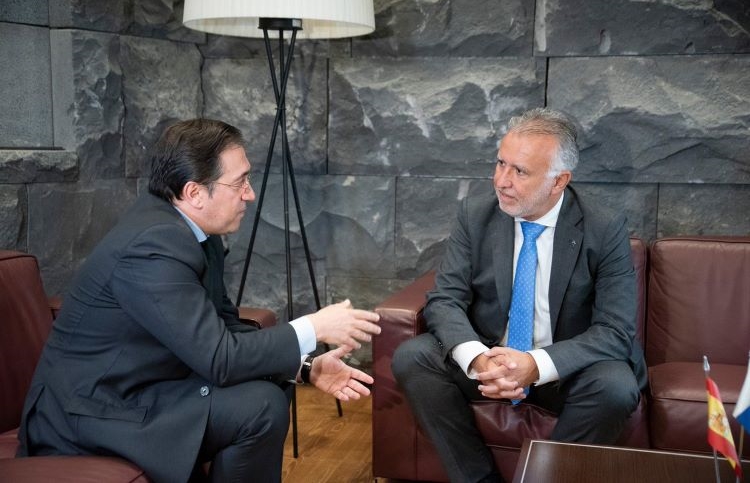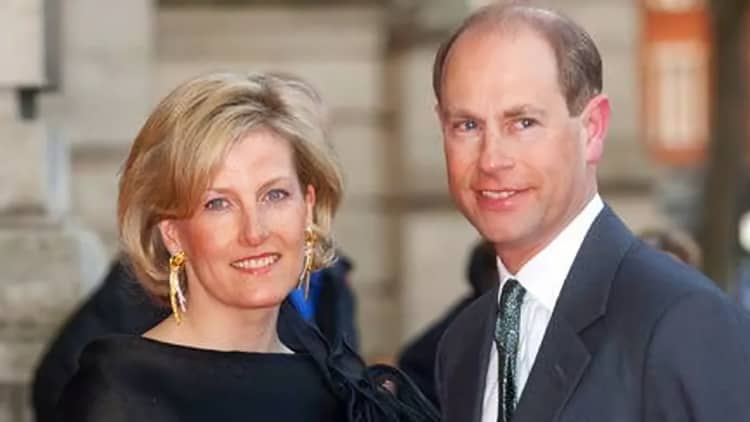Eduardo González
The Minister of Foreign Affairs, José Manuel Albares, and the President of the Canary Islands, Ángel Víctor Torres, have defended Spain’s position in favor of a NATO deployment in Africa, which could turn the archipelago into a platform for the reinforcement of the Alliance’s presence on the Southern Flank.
The new Strategic Concept of the Atlantic Alliance to be approved at the end of June at the NATO Summit in Madrid will contemplate, at the proposal of the Government of Pedro Sanchez, the deployment of the Alliance in Africa in order to face regional threats. As recently reported in the Canary Islands press, this initiative could turn the archipelago into “an important asset in NATO’s strategy for Africa”. Official government sources indicated that the proposal is being elaborated in Brussels “with the active and intense participation of Spain”. The Government of Mariano Rajoy already supported this deployment in 2014 and 2017.
In this regard, José Manuel Albares said yesterday “convinced”, after meeting in Santa Cruz de Tenerife with Torres, that there will be a NATO deployment on the Southern Flank to face threats that “are not symmetrical, but similar” to those of the Eastern Flank of Europe. The Minister also assured that one of the topics discussed during his meeting with Torres had been, precisely, the next NATO Summit in Madrid and recalled that Spain’s objective is that “the Alliance’s Strategic Concept, which is one of the key elements of that summit, has an important Southern Flank component”. He also assured that the Alliance is “very receptive” to the proposal that Spain is going to present in this regard.
In any case, according to the minister, the deployment of NATO bases in Africa “is not on the table”, but the reinforcement of the Southern Flank to respond “to all types of threats, be they cyber-attacks, the political use of irregular migrations or energy supplies, or terrorism, the epicenter of which is currently in the Sahel” is on the table. Albares did not clarify what would be the consequences of this deployment for the Canary Islands and limited himself to recalling that the archipelago is “the natural platform of Spain and also of Europe towards Africa”.
Ángel Víctor Torres himself assured last Tuesday in the regional Parliament -in response to a question from the PP on “what implications would have for the Canary Islands the deployment of NATO in front of Africa that will be proposed by the Government of Sánchez in the next Summit”- that his Government would support the presence of the Alliance in Africa because it would mean “greater security for the Islands”.
During the press conference, Albares also highlighted his “firm defense of the interest of the Canary Islands as an outermost region” within the European Union and announced that he had reached an agreement with Torres to “place the Canary Islands in the center of these outermost regions” during the next Spanish Presidency of the Council of the EU, in the second half of the year 2023. He also recalled that the Canary Islands “are also an external border of the European Union” and, therefore, the EU should focus its efforts “on strengthening the external borders and on achieving a migratory pact that is in solidarity with those points of first entry”, as is the case of the Canary Islands.
Morocco
In any case, the real highlight of Albares’ presence in the Canary Islands was the impact of the new stage of relations between Spain and Morocco after the Government’s decision to accept the autonomy plan for Western Sahara and after the road map agreed on April 7 in Rabat between Pedro Sanchez and the King of Morocco, Mohamed VI. The big problems between the Canary Islands and Morocco are, at present, the migratory flows through the so-called “Atlantic route”, the delimitation of territorial waters -after the Moroccan Parliament approved, at the beginning of 2020, two laws on maritime delimitation that conflicted with the Spanish territorial waters in the Canary Islands- and the gas and oil explorations that Morocco is carrying out near the archipelago.
In this respect, the minister assured in the press conference that the new stage will allow “that, shortly, the working group for the delimitation of maritime spaces will meet again after fifteen years”, in which he promised the participation of the Canary Islands. Likewise, he continued, the roadmap will help, “if so desired, to explore the maritime connections between the Canary Islands and Morocco” and has allowed “the reactivation of the migratory working group to control especially the Atlantic coast and to put an end to the scourge of the mafias that traffic in human beings and the unacceptable deaths that take place in the Atlantic year after year”.
In any case, he warned, “there will never be an absolutely total closure” of the borders to prevent the departure of migrants from the Moroccan coast, but expressed confidence that in the coming months will improve coastal surveillance and decrease the departure of boats thanks to diplomatic agreements with Morocco. In this regard, he recalled that, despite the upturn in May, the arrival of irregular migrants to the Canary Islands was reduced by 80% between January and April. However, he said, “very complex times are coming” in Africa because of the increase in the price of fertilizers and cereals, which will affect “especially weak” areas such as the Sahel, where there are food security problems and where there will be “more pressure” on migration.
For his part, Ángel Víctor Torres stressed that the improvement of relations between Spain and Morocco will allow the recovery of trade between the Canary Islands and the Maghreb country and announced that, by the end of the summer, an official delegation from the Canary Islands will visit Rabat.
The meeting between José Manuel Albares and Angel Victor Torres (both PSOE) was also attended by the Canary Islands Vice-President and Minister of Finance, Budgets and European Affairs, Román Rodríguez, who personally expressed to the Minister the rejection of his political party, the nationalist party Nueva Canarias, of the change of position of Spain on the Saharawi conflict.







